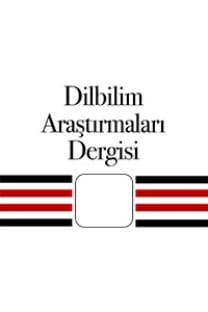Kıbrıs'ta çokdillilik Olgusu
Anahtar Kelimeler:
tarih
This study attempts to describe multilingualism in Cyprus in three periods of Cyprus history: The British Colonial period (1878 to 1960); The Republic of Cyprus period (I960 to 1974); and from 1974 to the present day through the perceptions of Turkish Cypriots. The data in the study are collected through interviews with the Turkish Cypriots who lived through the three periods. These interviews were later subjected to content analysis. Findings indicate that Turkish Cypriots are 'elite' bilinguals or 'school/cultured' bilinguals in English as they learn English through education, and 'contact' or 'folk' bilinguals in Greek due to contact with the Greeks in the mixed towns and villages before 1974. The functions of English are reduced to 'instrumental' and 'interpersonal' after 1974 excluding the 'regulative function' of the former periods during which English was one of the official languages. The function of Greek was only interpersonal as it was used in intercommunal relations before 1974, after which it is reduced to almost none due to the separation of the two communities. The study reveals that the Turkish Cypriots attribute great value to knowing English because of economic and professional gains.
Keywords:
history,
___
Altbach, P.G. (1995). Education and neocolonialism. In B. Ashcroft, G. Griffiths & H. Tiffin (eds.), The Postcolonial Studies Reader, 452-456. London: Routledge.Bolton, K. (2000). The sociolinguistics of Hong Kong and the space for Hong Kong English. World Englishes, 19(3), 265-285.
Boufoy-Bastick, B. (1997). Using language policies to highlight and contrast the values that shape multicultural societies: Examples from Singapore and Australia Australian Journal of Education, 41(1), 59-76.
Calotychos, V. (ed.). (1998). Cyprus and its People: Nation, Identity, and Experience in an Unimaginable Community, 1955-1997. Colorado: Westview Press.
Crystal, D. (1987). The Cambridge Encyclopaedia of Language. Cambridge: Cambridge University Press.
Crystal, D. (1997). English as a Global Language. Cambridge: Cambridge University Press.
Dodd, C. H. (1993). Historical introduction. In C.H. Dodd (ed.), The Political, Social and Economic Development of Northern Cyprus, 1-15. Huntingdon: The Eothen Press.
Evans, S. (2000). Hong Kong's new English language policy in education. World Englishes, 19(2), 185-204.
Fishman, J. A. (1972). The Sociology of Language. Rowley, Massachusettes: Newbury House Publishers.
Fishman, J. A., Conrad, A.W., and Rubal-Lupez, A. (eds.). (1996). Post Imperial English: Status Change in Former British and American Colonies, 1940-1990. Berlin: Mouton de Gruyter.
Glesne, C. & Peshkin, A. ( 1992). Becoming a Qualitative Researcher: An Introduction. White Plans, NY: Longman.
Hamers, J. & Blanc, M. H. A. (1989). Bilinguality and Bilingualism. Cambridge: Cambridge University Press.
Haugen, E. (1987). Blessings of Babel: Bilingualism and Language Planning. Berlin: Mouton de Gruyter.
Hoffmann, C. (1996). Societal and individual bilingualism with English in Europe. In R. Hartmann (ed.), The English Language in Europe, 47-60. Exeter: Intellect Ltd.
Kachru, B. B. (1983). The Other Tongue: English across Cultures. Oxford: Pergamon Press.
Kachru, B. B. (1986). The Alchemy of English: The Spread, Functions, and Models of Non-native Englishes. Urbana, Chicago: University of Illinois Press.
Kachru, B. B. (1992). The second diaspora of English. In T. W. Machan & C. T. Scott (eds.), English in its Social Contexts, 230-252. New York: Oxford University Press.
Kamwangamalu, N. M. (2000). A new language policy, old language practices: Status planning for African languages in a multilingual South Africa. South African Journal of African Languages, 20(1), 50-61.
Kuzel, A. (1992). Sampling in qualitative inquiry. In B. F. Crabtree & W. L. Miller (eds.), Doing Qualitative Research, 31-44. Newbury Park: Sage Publications.
McEntee-Atalianis, L. J. & Pouloukas, S. (2001). Issues of identity and power in a Greek-Cypriot community. Journal of Multilingual and Multicultural Development, 22(1), 19-38.
Morvaridi, B. (1993). Social structure and social change. In C. H. Dodd (ed.), The Political, Social and Economic Development of Northern Cyprus, 252-269. Huntingdon: Eothen Press.
Oberling, P. (1996). Cyprus: Yesterday and today. Kıbrıs Mektubu, 9(4), 20-27.
Pennycook, A. (1998). English and the Discourses of Colonialism. London: Routledge.
Persianis, P. (1996). The British Colonial education lending policy in Cyprus (1878-1960): An intriguing example of an elusive 'adapted education' policy. Comparative Education, 32 (I), 45-69.
Phillipson, R. (1992). Linguistic Imperialism. Oxford: Oxford University Press.
Patton, M. Q. (1987). How to Use Qualitative Methods in Evaluation. California: Sage Publications.
Romaine, S. (1995). Bilingualism. (2nd ed). Oxford: Blackwell Publishers.
Schaub, M. (2000). English in the Arab Republic of Egypt. World Englishes, 19(2), 225-238.
Skutnabb-Kangas, T. (1981). Bilingualism or Not: The Education of Minorities. Avon, England: Multilingual Matters Ltd.
Spolsky, B. (1996). English in Israel after independence. In J. A. Fishman, A. W. Conrad, and A. Rubal-Lupez (eds.), Post Imperial English: Status Change in Former British and American Colonies, 1940-1990, 535-556. Berlin: Mouton de Gruyter.
Tully, M. (1997). English: An advantage to India? ELT Journal, 5(2), 157-164.
- ISSN: 1300-8552
- Yayın Aralığı: Yılda 2 Sayı
- Başlangıç: 1990
- Yayıncı: Dilbilim Derneği
Sayıdaki Diğer Makaleler
Türkçe'de Durum Değişikliği Eylemlerinin Kılınış Özellikleri
Recent Findings on the Biological bases of Language
Aile İçinde Şiddete Uğramış Hasta Çocuk ile Sağlık Ekibi Arasındaki İletişim
Language (L2) Competency in Reference to Sex Differences
Türkçe'deki Seslerin Süre Özellikleri
Grapes, Banana, Juice, and Yes: Elements of Language in Non-human Primates
